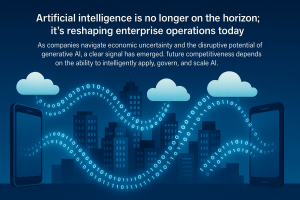Premise: Dell’s acquisition of EMC has an immediate impact on the large number of channel partners. Uncertainty over potential product and GTM changes add stress to end of 2015 sales and 2016 planning. As discussed in The End of the Storage Industry As We Know It, this deal simply highlights the known transitions to server-based solutions, flash, (hyper)converged infrastructure, and cloud. The opportunity for the channel is to add more value and partner deeper on solutions that support changing application portfolios and hybrid cloud architectures.
The Macro-Shift
The distribution channel will be critical in determining the success of Dell’s acquisition of EMC. This acquisition is the largest in the tech industry to date and continues a trend where mature technology companies have gone private including Dell, BMC, Riverbed and others. These moves happened because there was a belief that the public markets undervalued these companies. Wikibon sees a slow-motion collapse in the pricing of infrastructure, hardware and software that is driven by open-source software and cloud. Open-source software is typically free of licensing up front, so this impacts prices based on staffing and maintenance. Cloud has a more nuanced impact with both a shift from CapEx to OpEx, and a shift in the marginal economics of services to be similar to software, i.e., adding additional cloud services or cloud clients is close to free for the provider. This has a significant shift on outsourcing and traditional services that require personnel for every engagement; basically, AWS cloud services are similar to the marginal economics that Microsoft proved with software in the 1990’s. AWS will do about eight billion dollars of revenue at margins that are higher than many infrastructure providers.

Source: Wikibon
Inside the Billions
The Dell/EMC deal is primarily a financial transaction. Michael Dell and Silverlake Partners are buying a $67B EMC for $4B in cash by leveraging other assets and a tracking stock (see Figure 2 below). The new Dell will include Dell Classic which is $54B at 20% gross margin. The EMC Federation is a $25B, 60% gross margin business made up of EMC, VMware and other components. It is expected that Pivotal will be IPOed in the not too distant future; this will help raise cash to help offset some of the costs of the acquisition. The combined company is expected to have a blended margin on 30-35%. Moving to a combined, private company will enable the new Dell Federation to have a business at margins that can better compete in the world of open-source and cloud.

Source: Public sources, Andreessen Horowitz, Wikibon
Channeling the Transition
The Wikibon community has fed back concern about the impact of this acquisition on the distribution channel. Historically, Dell has not been the most channel-friendly and has sold directly to larger customer. Wikibon believes that the channel should not panic about Dell+EMC going direct to users. This is a time for the channel to reassess what business they are in. Today, about 70% of the channel is selling boxes; this business is under pressure and companies must manage the decline. Successful channel players are moving up the stack to sell higher skill solutions such as with VMware, SAP, Oracle, security, or DW/BI. These higher-value skills, consulting and services are of great value to both the vendor community and users. There is also an opportunity to expand into services that build on top of IaaS. Whether on AWS, Azure or service providers, adding modules and capabilities that can be delivered through an API are a high-growth area. The channel can bridge the gap between the developer/cloud services and enterprise buyers. The opportunity is to transition from selling systems (hardware and infrastructure software) to move value-added services.

Source: Wikibon, 2015
EMC has a 30k partners and Dell has 200k. While there will be some transition and fall-out from combining the channel, EMC and Dell will be cautious not to disrupt sales or to lose critical partners to the competition. Partners can expect that Dell and EMC will be looking to raise their game. The vendors will want more from the channel, so the channel should expect more from the vendors, such as deeper engagement (participation in development of solutions) and training. Dell and EMC should incent the channel through equipment, IaaS access, and services that can help transform both sides of the partnerships towards the new services that they want to sell.
Delivering on hybrid cloud solutions – this means both on-prem and public cloud components and the management/orchestration – are critical for the vendors and the new breed of channel partners. The new Dell has a strong partnership with Microsoft (including an expansion of Dell CPS with Microsoft Azure) and ownership of VMware (which includes Virtustream and vCloud Air) – both of these have the opportunity to deliver both ends of a hybrid cloud offering and the requisite management tools.
Action Item: The distribution channel is an important conduit of information both in how Dell/EMC are perceived by customers and in feeding information back to the vendor community to improve the services and solutions that are offered. Customers are looking for clear advice on how to leverage IT as a competitive differentiator and the channel’s delivery of hybrid cloud offerings can enable this.
Below: Wikibon Chief Analyst Dave Vellante unpacks the Dell EMC acquisition.
https://www.youtube.com/watch?v=KGQzxLB5xdo


